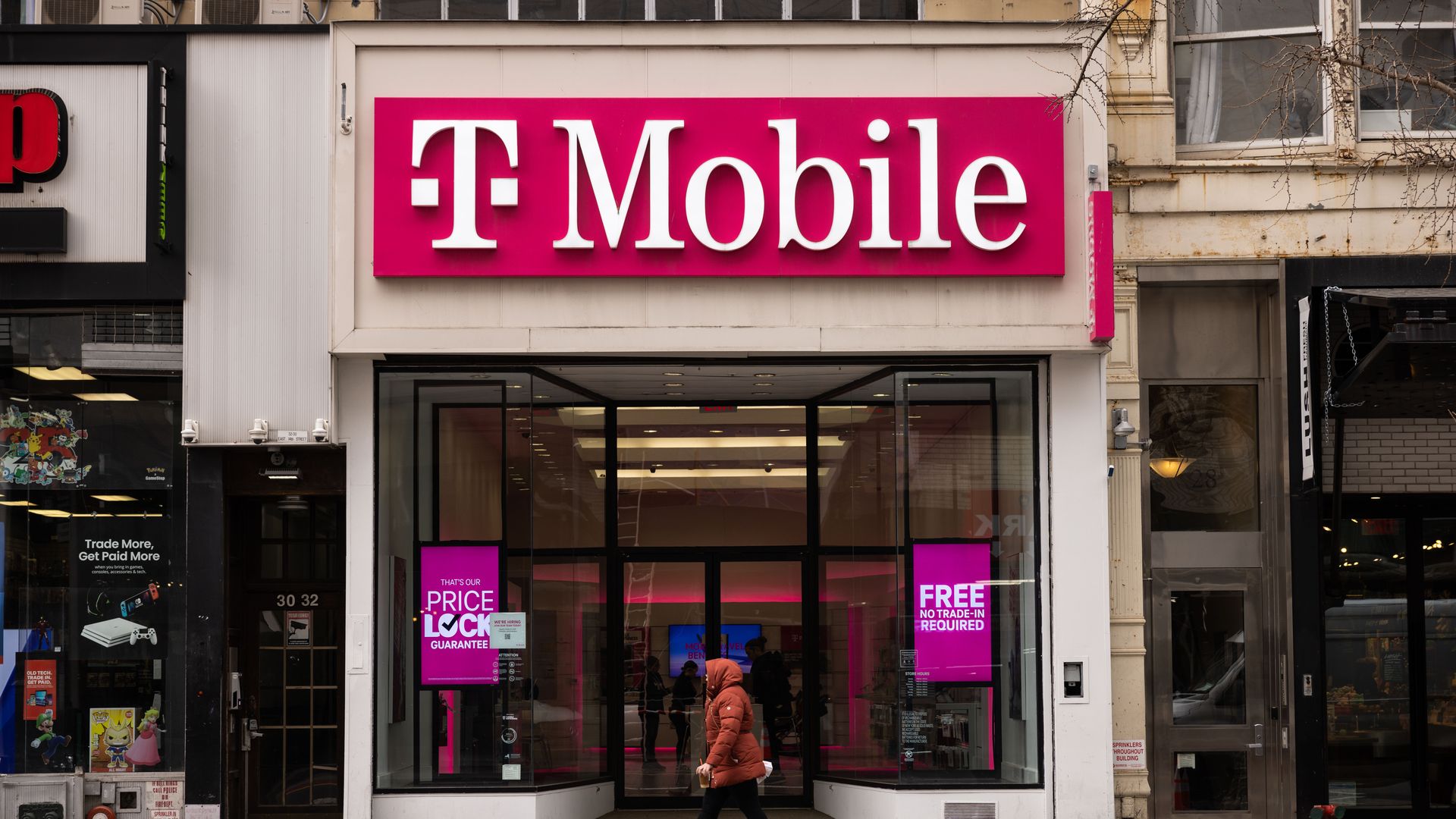T-Mobile Estimates Reduced Ahead of Q3 Results

Oppenheimer analysts share their outlook on T-Mobile US, Inc. (NASDAQ:TMUS) upcoming Q3 results, tweaking down their EBITDA estimates.
According to the analysts, the typical seasonal weakness seen in Q4 will be offset by merger-related synergies as the company finishes decommissioning its 3G network in December. Accordingly, the analysts smoothed their EBITDA estimates from Q3 to Q4. The company will enter 2023 with strong momentum as it hits the full run rate of synergies due to the completion of its network shutdown. The analysts expect the company to lead the industry in postpaid phone net adds this quarter with over 750,000 and its fixed wireless customer base is on pace to exceed 2 million subscribers annually and ramping.
The analysts reduced their 2022 EBITDA estimate by 110 bps and lowered their 2023 EBITDA from $29.5 billion to $28.3m billion, both within the guidance range.
| Symbol | Price | %chg |
|---|---|---|
| TLKM.JK | 3500 | 0.29 |
| DNET.JK | 9000 | 0 |
| AMX.BA | 34560 | 0.87 |
| ISAT.JK | 1925 | 1.04 |

T-Mobile US, Inc. (NASDAQ:TMUS): A Strong Contender in the Telecom Industry
- T-Mobile maintains a robust market presence with consistent growth, competing effectively against giants like Verizon and AT&T.
- UBS maintains an "Overweight" rating with a "hold" action, while Morgan Stanley names T-Mobile as the "Top Pick in Telecom."
- The company's financial performance impresses with five consecutive quarters of exceeding revenue and earnings expectations, leading to a 5.8% stock price increase in Q2 2025.
T-Mobile US, Inc. (NASDAQ:TMUS) is a leading telecom provider in the United States, known for its robust network and customer-centric services. The company has been recognized for its consistent growth and strong market presence. T-Mobile competes with other major telecom players like Verizon and AT&T, but it has carved out a significant market share due to its innovative offerings and competitive pricing.
On October 7, 2025, UBS maintained its "Overweight" rating for T-Mobile, with a "hold" action, indicating confidence in the stock's potential. At that time, the stock was priced at $224.96. Morgan Stanley also named T-Mobile as the "Top Pick in Telecom," as highlighted by TheFly, further underscoring the company's strong position in the industry.
T-Mobile's financial performance has been impressive, with the company reporting its fifth consecutive quarter of exceeding revenue and earnings expectations in Q2 2025. This achievement led to a 5.8% increase in its stock price, reflecting investor confidence. The company's ability to consistently surpass expectations highlights its operational efficiency and market strength.
Despite a recent decrease of approximately 2.31% in its stock price, T-Mobile remains a high-quality investment. The stock experienced a drop of $5.31, with a trading range between $222.26 and $229.06 for the day. However, T-Mobile's stable demand and dividend yield of 1.71% make it a defensive choice for investors seeking reliable returns.
T-Mobile's market capitalization stands at approximately $253.17 billion, showcasing its significant size and influence in the telecom sector. With a trading volume of 5,999,652 shares, the stock remains actively traded, reflecting ongoing investor interest. Over the past year, T-Mobile's stock has seen a high of $276.49 and a low of $208.39, indicating its resilience in a competitive market.

T-Mobile US, Inc. (NASDAQ:TMUS) Recognized for Best Network, Aiming for Stock Boost
- T-Mobile US, Inc. (NASDAQ:TMUS) has been officially recognized as having the best network in America, potentially boosting its stock performance.
- Despite recent share sales by DEUTSCHE TELEKOM AG, the company still holds a substantial number of shares, indicating confidence in T-Mobile's long-term prospects.
- The stock's current price is $231.26, with a trading volume indicating active investor interest, possibly due to recent recognitions and share transactions.
T-Mobile US, Inc. (NASDAQ:TMUS) is a major player in the telecommunications industry, known for its extensive network coverage and competitive pricing. Recently, T-Mobile has been officially recognized as having the best network in America. This recognition is expected to enhance T-Mobile's competitive edge, potentially boosting its stock performance by increasing customer trust and subscriber numbers.
The recent sale of T-Mobile shares by DEUTSCHE TELEKOM AG, a significant shareholder, involved 47,074 shares at approximately $221.54 each, and 22,366 shares at $222.33 each. Despite these sales, DEUTSCHE TELEKOM AG still holds a substantial 648.36 million shares, indicating continued confidence in T-Mobile's long-term prospects.
T-Mobile's current stock price is $231.26, reflecting a 0.63% increase. The stock has traded between $228.90 and $231.29 today, showing stability. Over the past year, TMUS has seen a high of $276.49 and a low of $173.74, highlighting its volatility. The company's market capitalization is approximately $262.58 billion, underscoring its significant market presence.
The trading volume for T-Mobile today is 2,429,449 shares, indicating active investor interest. This activity could be influenced by the recent network recognition and DEUTSCHE TELEKOM AG's share transactions. As T-Mobile continues to strengthen its market position, investor confidence may grow, potentially driving further stock price increases.

T-Mobile Beats on Earnings and Lifts Outlook, But Shares Drop 6% on Phone Subscriber Miss
T-Mobile (NASDAQ:TMUS) delivered better-than-expected first-quarter earnings and revenue, but a miss on key subscriber growth figures overshadowed the strong financials, sending shares down more than 6% in premarket trading.
The wireless carrier reported adjusted earnings of $2.58 per share, topping analyst estimates of $2.47. Revenue reached $20.89 billion, slightly ahead of the $20.68 billion consensus and up 6.6% from the same period a year ago.
However, the market reacted negatively to a shortfall in postpaid phone customer additions. T-Mobile added 495,000 postpaid phone subscribers during the quarter, missing expectations of roughly 507,000. Still, total postpaid net additions reached a record 1.3 million, driven by strong performance across other plan categories. The company also added 424,000 High Speed Internet customers.
Despite the subscriber miss, T-Mobile raised its full-year 2025 Core Adjusted EBITDA guidance to a range of $33.2 billion to $33.7 billion, slightly above its previous forecast. The company reaffirmed its target of 5.5 to 6.0 million postpaid net customer additions for the year.
While the first-quarter results demonstrated strength in profitability and broader customer growth, the lower-than-expected phone subscriber numbers drew investor scrutiny, triggering a sharp sell-off in early trading.

T-Mobile Beats on Earnings and Lifts Outlook, But Shares Drop 6% on Phone Subscriber Miss
T-Mobile (NASDAQ:TMUS) delivered better-than-expected first-quarter earnings and revenue, but a miss on key subscriber growth figures overshadowed the strong financials, sending shares down more than 6% in premarket trading.
The wireless carrier reported adjusted earnings of $2.58 per share, topping analyst estimates of $2.47. Revenue reached $20.89 billion, slightly ahead of the $20.68 billion consensus and up 6.6% from the same period a year ago.
However, the market reacted negatively to a shortfall in postpaid phone customer additions. T-Mobile added 495,000 postpaid phone subscribers during the quarter, missing expectations of roughly 507,000. Still, total postpaid net additions reached a record 1.3 million, driven by strong performance across other plan categories. The company also added 424,000 High Speed Internet customers.
Despite the subscriber miss, T-Mobile raised its full-year 2025 Core Adjusted EBITDA guidance to a range of $33.2 billion to $33.7 billion, slightly above its previous forecast. The company reaffirmed its target of 5.5 to 6.0 million postpaid net customer additions for the year.
While the first-quarter results demonstrated strength in profitability and broader customer growth, the lower-than-expected phone subscriber numbers drew investor scrutiny, triggering a sharp sell-off in early trading.

T-Mobile Soars 8% After Beating Subscriber Growth Estimates and Raising 2025 Outlook
T-Mobile US (NASDAQ:TMUS) saw its stock surge over 8% intra-day today after reporting stronger-than-expected subscriber growth for the fourth quarter and providing a bullish outlook for 2025. The telecom giant’s ability to attract customers with affordable high-speed 5G plans and bundled streaming services, such as Netflix, continued to fuel its expansion.
During the quarter, T-Mobile added 903,000 postpaid phone subscribers, surpassing Bloomberg’s consensus estimate of 864,539. CEO Mike Sievert emphasized that the company was delivering its “strongest start-of-year” guidance for bill-paying net customer additions in its history. For 2025, postpaid net subscribers are projected to rise between 5.5 million and 6 million, exceeding analyst expectations of 5.23 million. In 2024, the company reported 6.1 million postpaid additions, outpacing its own upgraded forecasts.
Revenue for the quarter climbed 6.8% year-over-year to $21.87 billion, ahead of estimates of $21.35 billion. Earnings per share came in at $2.57, reinforcing the company’s profitability.
T-Mobile also delivered robust free cash flow, a key metric for determining dividend distributions. The company generated $4.1 billion in adjusted free cash flow for the quarter and $17 billion for the full year. In 2025, free cash flow is expected to range between $17.3 billion and $18 billion, exceeding Street estimates at the midpoint.
Previously, T-Mobile projected its free cash flow would reach between $18 billion and $19 billion by 2027, signaling continued financial strength and shareholder returns in the years ahead.

T-Mobile Soars 8% After Beating Subscriber Growth Estimates and Raising 2025 Outlook
T-Mobile US (NASDAQ:TMUS) saw its stock surge over 8% intra-day today after reporting stronger-than-expected subscriber growth for the fourth quarter and providing a bullish outlook for 2025. The telecom giant’s ability to attract customers with affordable high-speed 5G plans and bundled streaming services, such as Netflix, continued to fuel its expansion.
During the quarter, T-Mobile added 903,000 postpaid phone subscribers, surpassing Bloomberg’s consensus estimate of 864,539. CEO Mike Sievert emphasized that the company was delivering its “strongest start-of-year” guidance for bill-paying net customer additions in its history. For 2025, postpaid net subscribers are projected to rise between 5.5 million and 6 million, exceeding analyst expectations of 5.23 million. In 2024, the company reported 6.1 million postpaid additions, outpacing its own upgraded forecasts.
Revenue for the quarter climbed 6.8% year-over-year to $21.87 billion, ahead of estimates of $21.35 billion. Earnings per share came in at $2.57, reinforcing the company’s profitability.
T-Mobile also delivered robust free cash flow, a key metric for determining dividend distributions. The company generated $4.1 billion in adjusted free cash flow for the quarter and $17 billion for the full year. In 2025, free cash flow is expected to range between $17.3 billion and $18 billion, exceeding Street estimates at the midpoint.
Previously, T-Mobile projected its free cash flow would reach between $18 billion and $19 billion by 2027, signaling continued financial strength and shareholder returns in the years ahead.

Oppenheimer Updates its View on T-Mobile US
Oppenheimer analysts provided a review on T-Mobile US, Inc. (NASDAQ:TMUS), adjusting their model to account for the ongoing shortage of the new iPhone 14 model.
The analysts revised their Q4 equipment revenue estimate down from $5.2 billion to $4.8 billion. Despite this, they expect the company to enter 2023 with strong momentum and see significant improvements in its network. These improvements include increasing the spectrum depth from 120 MHz to 200 MHz by the end of 2023 and launching the mid-band spectrum on 5G Standalone. The company is also expanding geographically to new areas. Last quarter, T-Mobile completed the shutdown of the Sprint network and the merger is expected to be complete next year, at which point the full synergies should be realized.
The analysts are optimistic about fixed wireless services and expect to see around 500,000 quarterly net adds through 2025, as customers choose premium unlimited plans that allow them to bundle Home Internet with mobile and save $20 per month.







